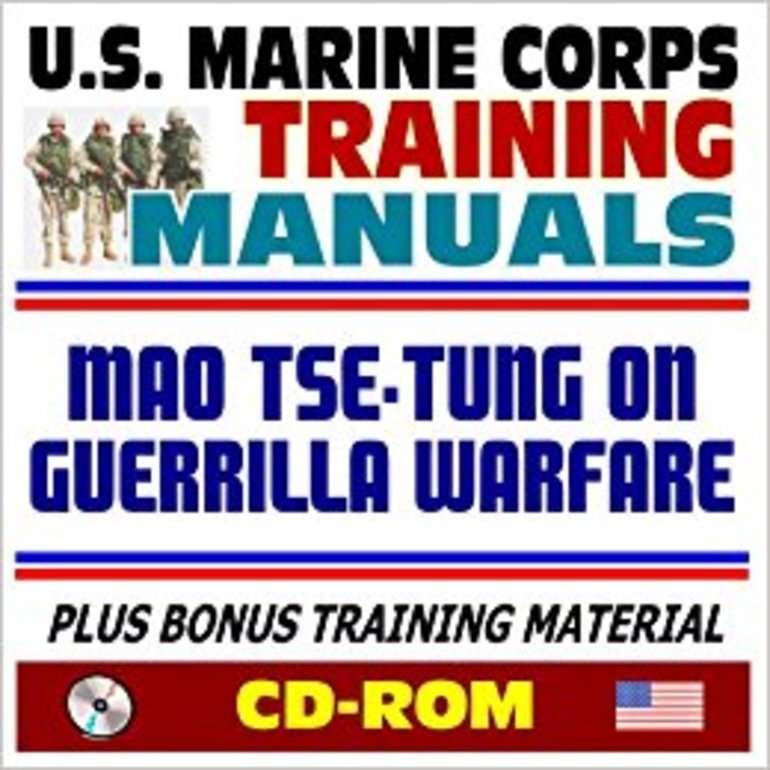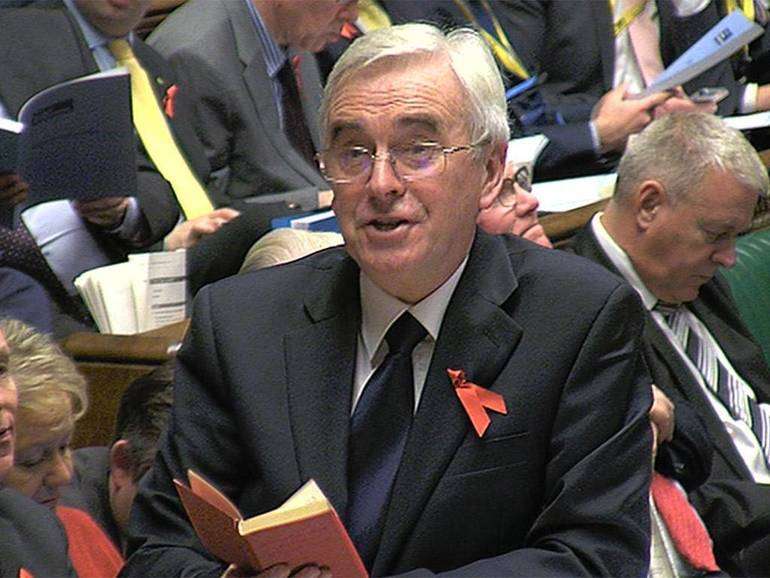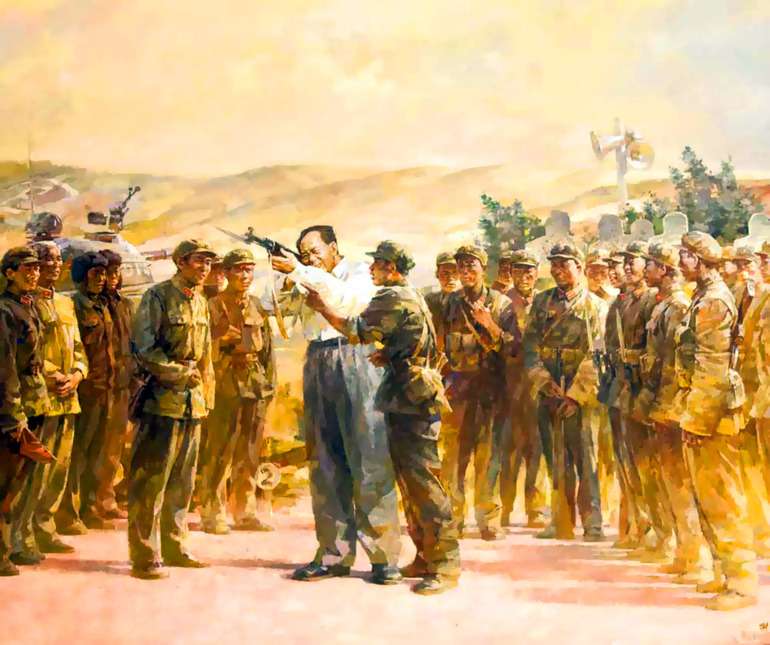By a contributor for Tjen Folket Media., published 18th of April 2018.
Not all revolutionaries understand how groundbreaking Mao Zedong’s contributions have been for the masses fighting for freedom. In the enemy’s camp, however, Mao is studied and treated with respect. Mao is read by the CIA and in other American agencies in order to understand – and counteract – resistance and rebellion against US imperialism.
An example of this is the scientist Thomas A. Marks. In his article “Mao Tse-tung and the search for 21st Century Counterinsurgency” from 2009, he not only states that Mao is important, but also that all resistance movements have to – consciously or not – follow Mao’s guidelines for warfare. Marks says that Mao is to guerrilla warfare (irregular warfare) what Clausewitz and Napoleon are to regular warfare.
Maoists say that Mao Zedong’s teachings on protracted people’s war are nothing less than the proletariat’s own military strategy. Thomas A. Marks, who lends his intellect to the US war machine with the hope of helping it defeat uprisings, unsurprisingly, fails to grasp the class nature of this science. He does, however, affirm that rebels need to use Mao’s methods, be they Maoists or not. If they fail to do so, the rebellion will fail. He affirms that guerrilla warfare is the “warfare of the weak”, and that it is a method all rebels must use before they become strong enough to completely eradicate the enemy in regular warfare.

While reading Marks’ article, I took note of the following of his assessments:
- Mao’s teachings on the people’s war, elevated asymmetrical warfare from a purely tactical and military level, to a strategic and political level. This is why one can not discuss rebellions in general without coming by Mao Zedong’s works.
- Mao’s article “On Guerrilla War” is just a springboard into his collected works, and needs to be seen in the context of those. Mao’s line is that the people’s war has to be led strategically and politically, across several “lines”, with violence being only one of them.
- When the rebels are weak, they have to wage the “war of the weak”, using “terror and guerrilla warfare” (Marks). In this phase, “the strategic defensive” (Mao), local rulers, state representatives, the police, and those who want to mobilize people against the rebellion are the primary targets for the rebels’ violence. As the rebellion becomes stronger, the primary task becomes to neutralize the military forces.
- In Mao’s view, the violence in the first stage is not as much war, as it is armed politics. The targets of the violence are primarily political and propagandistic, to primarily lead forward and protect the politics, and not primarily achieve direct military victories.
- The US military has largely misunderstood Mao when they claim that non-violent struggle leads up to a violent one. This non-violent struggle is “phase one” in American military literature. Marks believes that Mao is resoundingly clear on this issue: violence is an integral part at all stages of rebellion. The only difference being is that the use of violence is adapted to the situation.
- The aim of Mao’s revolutionary violence is to eliminate the enemy’s presence and power, so that the rebel’s politics can find support with the broad masses. Mao’s criticism of Che Guevara’s focoism resembles the theoretical dispute between the Jihadis al-Zawahiri and al-Zarqawi, where the former accuses the latter of focusing too much on the violence at the expense of the politics.
- All conflicts “resemble Iraq in the beginning” (Marks, 2009), with a series of different groups operating on their own, without anyone being in control or in command. The big participants will eventually push to dominate and develop a position with one dominant center.
- Mao says that violence is decisive for all rebel movements, but politics is the most important. Violence is a tool to drive the politics forwards, and has to be simultaneously done along several parallel lines; violence and politics, non-violence to make the violence more effective, win allies outside the movements and win allies internationally.
- Mao’s use of several frameworks is striking. In order to conceptualize the people’s war, he takes use of both military science and political ideology.
- Most rebellions fail, and they fail because they are unable to move simultaneously along the lines Mao puts forward. FARC in Colombia is an example of this. They used Mao’s line for people’s war in theory, while in practice it was just a big “foco”, overemphasizing the violence without being able to create a strong enough base among the masses.
- Mao’s approach can, if turned on it’s head, give the powerful and the imperialists insight into every rebellion and into every asymmetrical challenge.
- The more the rebels fall into pure “terrorism” without building support among the masses, the more the powerful can utilize a traditional strategy against rebellions to win “hearts and minds.” The closer the rebels are to using Mao’s lines in a good and correct manner, the more important it becomes for the powerful to show “good governance” and base itself on its legitimacy as an authority.
- The power’s answer to revolutionary war has to be armed reform. The success depends on not just merely defending the status quo.
Marks concludes by writing: “Mao would be the first to admit that the devil is in the details, but he would conclude that tactics are meaningless in the absence of sound strategy and operational art driven by an accurate and penetrating analysis of the conflict.”
For Maoists, the fact that the enemy reads and emphasizes Mao is not surprising.

Mao Zedong is no less than he who first outlined the proletarian military science in a clear manner; as protracted people’s war. Despite this, Maoists still have to struggle ideologically with other leftist tendencies that deny the universal features of Maoism. An example of this would be tendencies that claim the people’s war to be “a peasant war” and that its only relevant for countries in the third world. These should note that a bourgeois scientist like Dr. Thomas A. Marks not once mentions peasants or the third world in his article. He furthermore says that – without exceptions – Mao’s teachings on the people’s war are relevant for all rebellions. Those that are in the business of combating rebellions look to the foremost theory about rebellion. Why should the the rebels themselves do any worse?
Kjære leser!
Tjen Folket Media trenger din støtte. Vi får selvsagt ingen pressestøtte eller noen hjelp fra rike kapitalister slik som rasistiske “alternative medier”. All vår støtte kommer fra våre lesere og fra den revolusjonære bevegelsen. Vi er dypt takknemlige for dette. Vi overlever ikke uten, og du kan gjøre ditt bidrag ved å støtte oss med det du kan avse.
